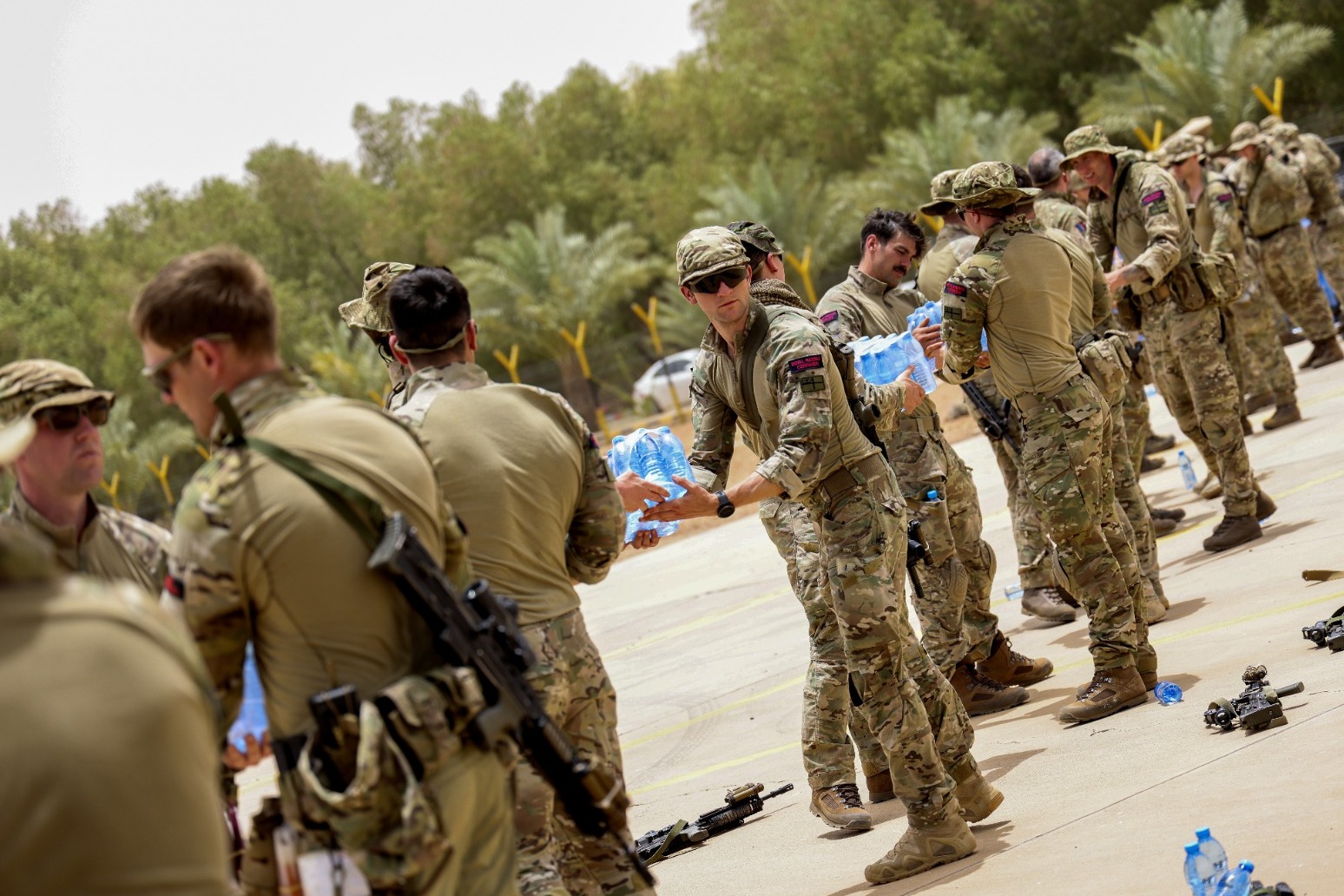
Britain lifts 301 people to safety from Sudan with four more flights scheduled
The British evacuation mission from Sudan has lifted 301 people to safety over four flights as the military races against time to rescue citizens while a fragile ceasefire holds.
Another RAF flight was preparing to depart the Wadi Saeedna airstrip near the capital of Khartoum on Wednesday afternoon, with a further three flights expected later in the day.
Downing Street said the flights have been “full or close to full”, with no “significant issues” being faced by the evacuees who have been told to make their own way to the airfield.
More than 2,000 British nationals have registered in Sudan under evacuation plans, but thousands more could be in the country.
The Prime Minister’s official spokesman said the operation in Khartoum is “running smoothly”, while there is currently “no issue with capacity”.
He told journalists that 301 people have been lifted to safety on four flights, with the total number of RAF planes to depart Khartoum due to double on Wednesday.
The official said the “majority” of the people on the planes were British nationals but that some will be citizens of allied countries.
He had not been informed of “large-scale problems” of non-British passport holders turning up and being told they are not eligible.
Despite nationals being told to make their own way to the airstrip, he said “we are not seeing those who are making that travel having significant issues”.
Downing Street hopes to carry on with flights throughout the week and does not believe there will be a need to “leave the airport imminently”.
A 72-hour ceasefire brokered by the warring rival generals has largely held since it began in the early hours of Monday.
It is understood that if fighting resumes the evacuation operation will not necessarily end, but it will present a greater risk to the safety of evacuees, troops and officials.
The first flight of British nationals arrived back in London Stansted on Wednesday afternoon, having left Larnaca in Cyprus, where they were initially evacuated.
Rishi Sunak was urged by SNP leader Stephen Flynn whether he would deport child refugees who arrive in the UK without authorisation under plans to “stop the boats”.
The Prime Minister told the Commons of the country’s “proud record” of supporting asylum seekers, but did not commit to a new safe and legal route for those fleeing Sudan.
HMS Lancaster is progressing towards Port Sudan, the Red Sea dock some 500 miles from Khartoum that could possibly be used in a seaborne operation.
But with UK nationals being told to make their own way to evacuation sites, that trip would be made particularly challenging by fuel shortages and the traffic of people fleeing.
In an apparent swipe at the UK’s approach, German foreign minister Annalena Baerbock said Berlin would not leave civilians “to their own devices” as it completed its evacuation.
She said that “unlike in other countries”, Germany’s evacuation had included all its nationals and not just embassy staff, whom the UK airlifted to safety on Sunday.
The Prime Minister has argued it was “right” that diplomats were prioritised “because they were being targeted”.
A UK-born student attempting to flee Sudan said she does not have enough petrol to make the dangerous one-hour drive from the outskirts of Khartoum to the airstrip.
“I’m trying to get there.
“But the problem is the vehicles that we have have no gas, and the petrol stations are empty,” Samar Eltayeb, 20, from Birmingham, told the PA news agency.
“There’ll be constant flights within the next few days, but if I can’t find gas to get there, then I’m stuck.”
British forces are expected to take over command of the operation in Wadi Saeedna from German troops on Wednesday.
Some 120 British service personnel have been sent to the airfield, but the security of the site is being maintained by the Sudanese armed forces.
The military is ready to use force if needed if the site comes under attack, although the troops are primarily there to help with logistics and providing air traffic control.
Families with children or elderly relatives, or individuals with medical conditions, are being prioritised for the flights.
Only British passport holders and immediate family members with existing UK entry clearance are being told they are eligible.
Nationals have been warned all travel within Sudan is “conducted at your own risk”.
Published: by Radio NewsHub